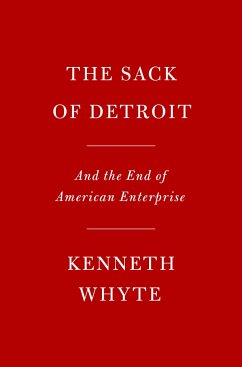A provocative, ground-breaking history of the downfall of the American auto industry from the widely praised author of Herbert Hoover: An Extraordinary Life in Extraordinary Times. In the 1950s, America enjoyed massive growth and affluence, and no companies contributed more to its success than automakers. They were the biggest and best businesses in the world, their leadership revered, their methods imitated, and their brands synonymous with the nation's aspirations. By the end of the 1960s, Detroit's profits had evaporated and its famed executives had become symbols of greed, arrogance, and incompetence. No company suffered this reversal more than General Motors, which found itself the main target of a Senate hearing on auto safety that publicly humiliated its leadership and shattered its reputation. In The Sack of Detroit, Kenneth Whyte recounts the epic rise and unnecessary fall of America's most important industry. At the center of his absorbing narrative are the automotive titans and the safety crusaders: Ralph Nader and a group of senators including Bobby Kennedy. Their collision left Detroit in a ditch, launched a new era of consumer advocacy and government regulation, and contributed significantly to the decline of American enterprise. This is a vivid story of politics, business, and a sudden, seismic shift in American priorities that is still felt today.
Hinweis: Dieser Artikel kann nur an eine deutsche Lieferadresse ausgeliefert werden.
Hinweis: Dieser Artikel kann nur an eine deutsche Lieferadresse ausgeliefert werden.







